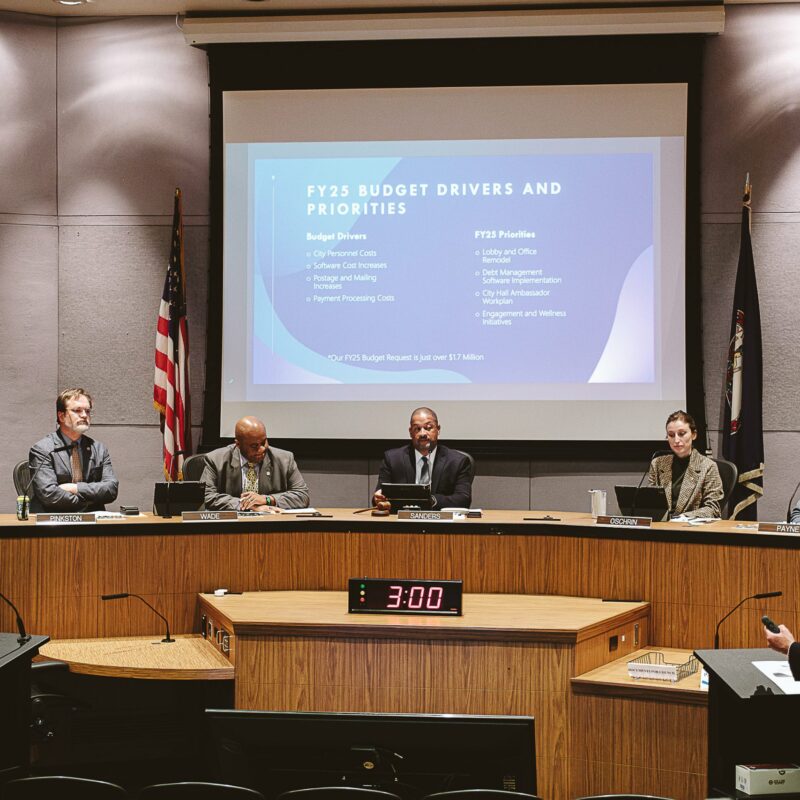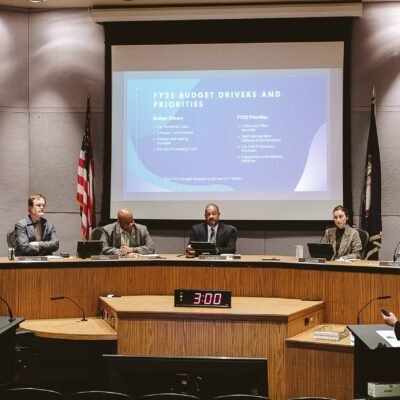Usually, the first few weeks after an election are a time of quiet contemplation. The victors rejoice, the defeated lick their wounds, and everyone takes a well-needed vacation after a bruising campaign. But occasionally — when the results are too close to call, say, or the contest was especially bitter and divisive — the grandstanding and partisan rancor continue unabated, even while the voting machines are mothballed, and the actual voters move on to more fulfilling activities, like leaf-peeping and turkey shopping.
|
Current Senate Majority leader Dick Saslaw (D) said Lieutenant Governor Bill Bolling (R, pictured) believes "there’s nothing he can’t vote on."
|
Well, such is the case in the aftermath of this year’s General Assembly elections — at least on the state senate side. With 68 out of 100 seats, Republican hegemony in the House of Delegates is now so vast that Democrats can do little but grumble and insist — as newly elected minority leader David Toscano recently did — that they “will not stand idly by as Republican leadership in the House fails to address the challenges we face.”
To understand the current fracas in the senate, you have to know two things. First, Republicans fully expected to win an outright majority, and are absolutely dumbfounded that they only managed to capture 20 out of the chamber’s 40 seats. Second, Lieutenant Governor Bill Bolling desperately wants to be Virginia’s next governor, and is gearing up for a near-certain challenge from his right by Attorney General Ken Cuccinelli for the Republican nomination.
Here’s the rub: Since Bolling is empowered by Virginia’s constitution to break all tie votes in the senate, the combination of his raw ambition and the Republican’s sense of entitlement basically guaranteed a hubristic power grab.
If the Dems had any hope that a power-sharing agreement might be reached, those hopes were quickly dashed, as Bolling didn’t even bother to wait for the 17th district’s razor-thin race between incumbent Democrat Edd Houck and Republican challenger Bryce Reeves to be decided before declaring, “make no mistake about it, there is a Republican majority in the state Senate.”
Yet, Bolling’s bluster aside, it is by no means clear that the LG’s tie-breaking power extends to parliamentary issues. Current majority leader Dick Saslaw, for one, is not buying it. “My impression is, the lieutenant governor says there’s nothing he can’t vote on,” an obviously skeptical Saslaw told reporters last week. Promising a court challenge, he declared that Bolling’s ability to decide such matters as judgeships, budget questions and committee appointments “ought to get settled for all time.”
For Democrats, the stakes couldn’t be higher. Already stuck with a House redistricting map that heavily favors Republicans, Dems are now facing the very real possibility that the elephants will revisit and redesign the senate map, as well. Then, of course, there’s the still-unfinished congressional redistricting, which Republicans now want to complete next year, once the new Assembly is seated. (This plan has also spurred a lawsuit, with six Virginia voters petitioning a federal court to draw the 2012 congressional map, since the Assembly has apparently failed to fulfill its constitutional mandate to “reapportion the Commonwealth into electoral districts… in the year 2011 and every ten years thereafter.”)
So how will it all end? Keep your popcorn and Junior Mints handy, because we can promise you one thing: This is going to be one hell of a show.






